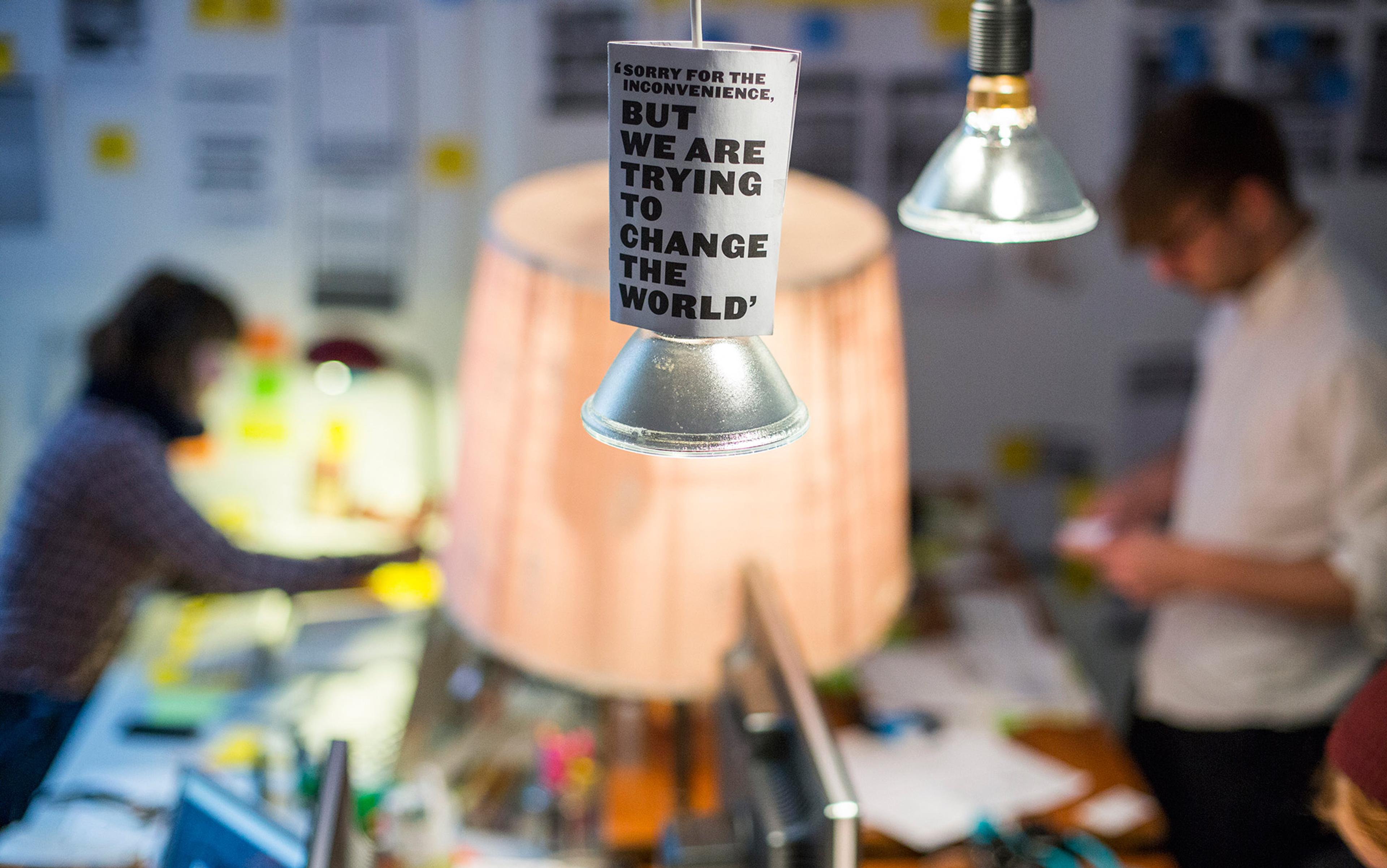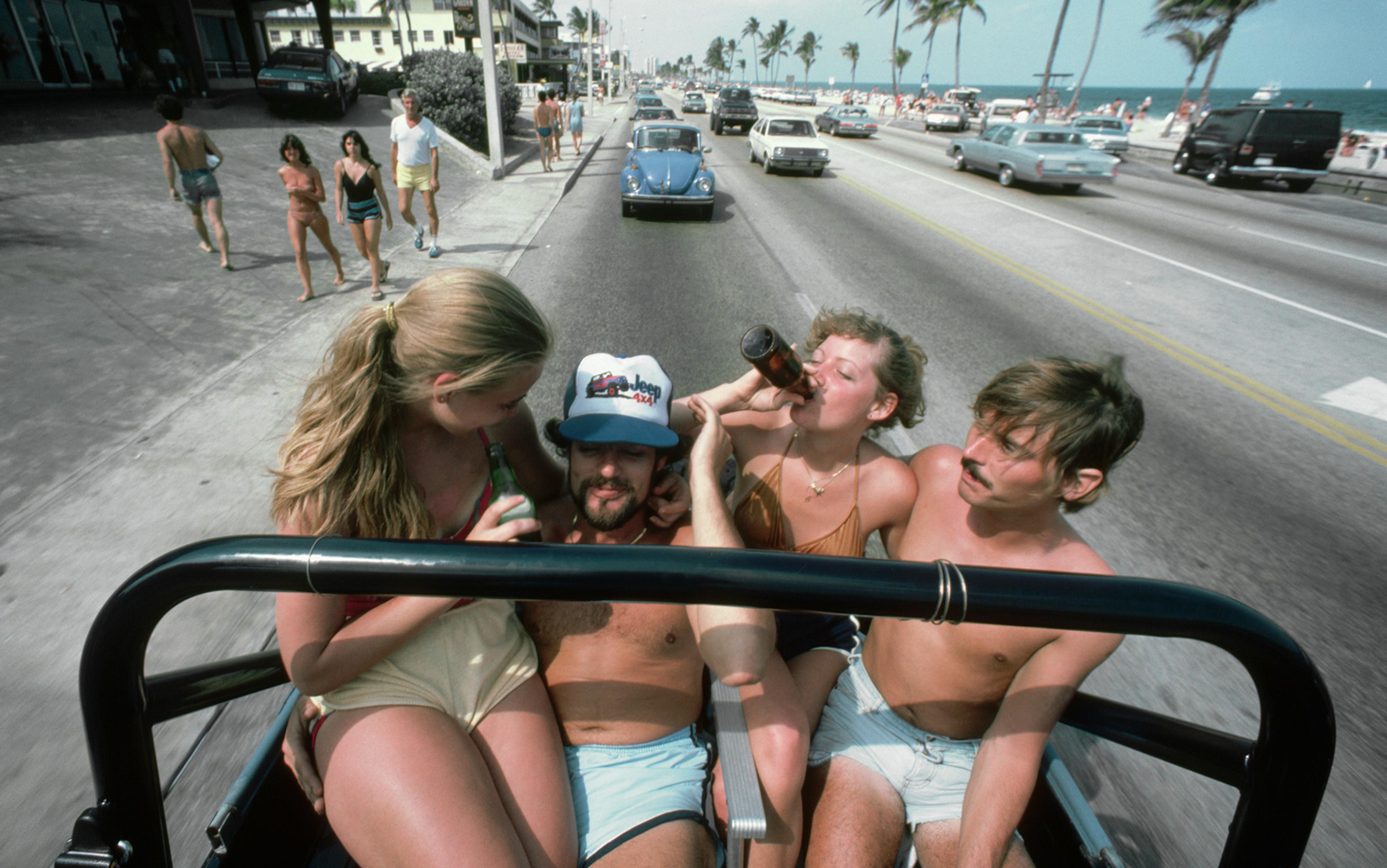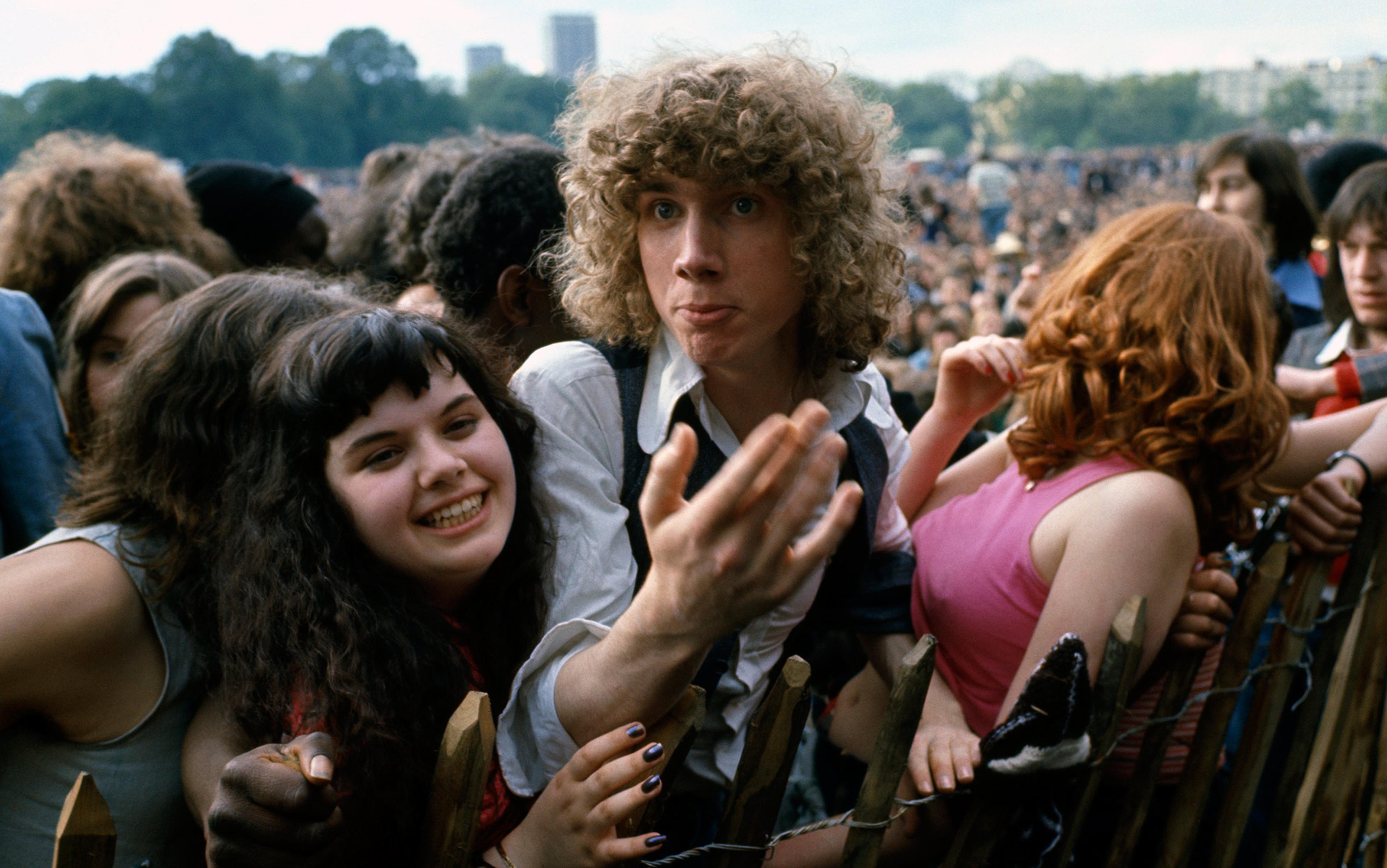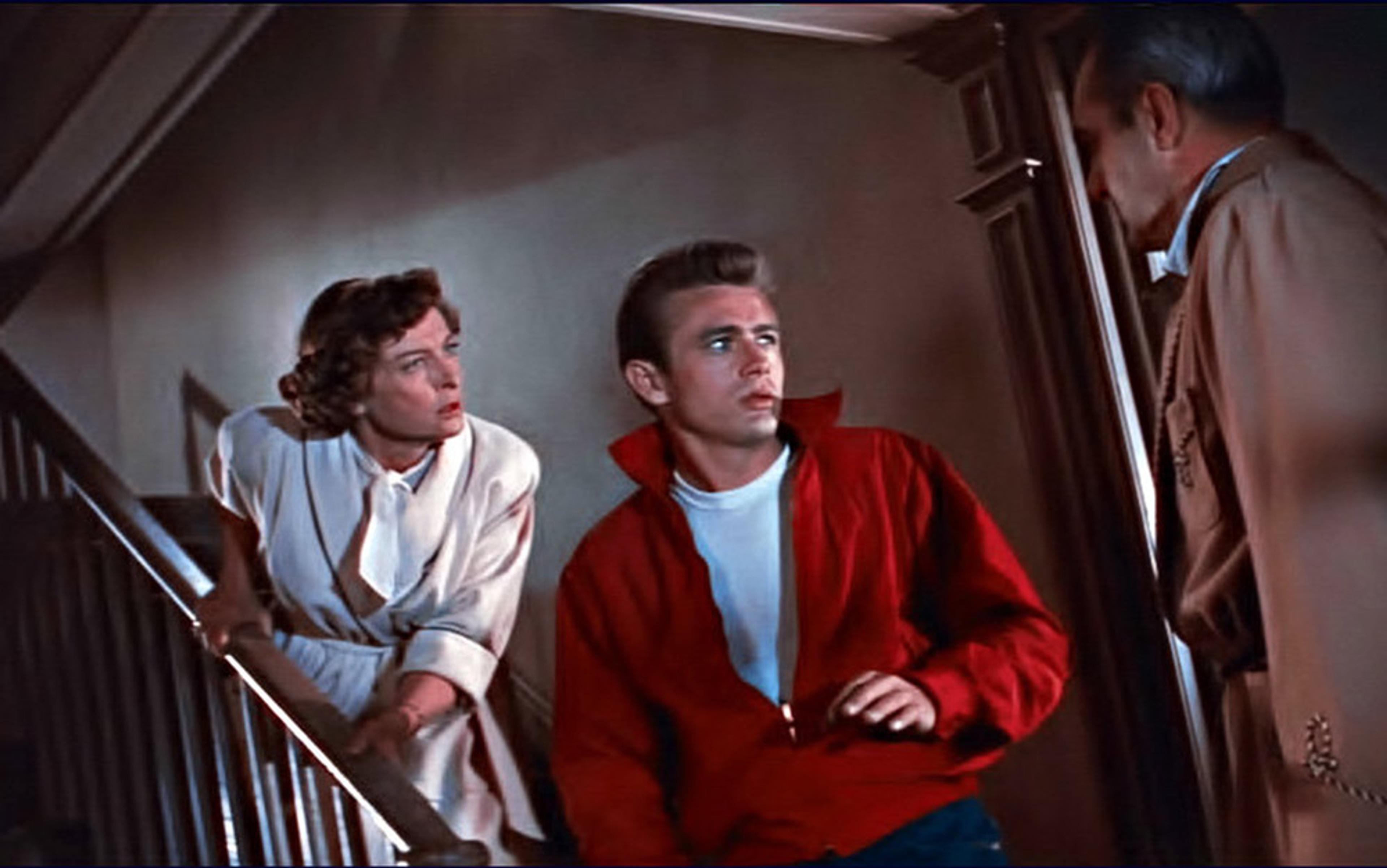I will readily admit, it took me a long time to grow up. I graduated from Michigan State University in 1980 at the age of 23 with a freshly printed bachelor’s degree in psychology and no idea what I really wanted to do. I’d learned to play guitar in college and, intent on avoiding the drudgery of a crummy low-paying job, I now worked up a repertoire of songs large enough to enable me to make money by playing in bars and restaurants. I made enough to live on, but only because I had moved back home with my parents and didn’t have to pay for rent or groceries.
After a couple of years, I entered graduate school in psychology, but even after I got my PhD four years later, I still didn’t really know what I wanted to do. In the romantic department, I was no further along either. I’d had lots of girlfriends by then, but never come close to marriage. Eventually, I did find my way in love and work, but it took many years more: I got my first long-term job (as a professor) at 35, married at 36, and had my kids (twins) at 42.
When my research on how young people make their way to adulthood first began, the initial inspiration was my own odyssey. I was in my early 30s and thinking about how long it was taking me – and lots of my peers – to get there. But I have maintained my research focus on these 18- to 29-year-olds because I found they were so rewarding to talk to.
I had studied adolescents for years before that, mostly high-school students, focusing on their media use and risky behaviours such as driving while intoxicated. I enjoyed this research, but found that adolescents often clammed up when I tried to interview them. They were wary of me – a potentially intrusive adult – but it seemed that they also lacked self-reflection and self-understanding. Their egocentrism prevented them from being able to take a step back and reflect thoughtfully on what they did and why they did it.
But ‘emerging adults’, in the 18-29 age group, did have that ability, and not only those who were college-educated like me. My most memorable interviews were with emerging adults whose experiences were totally different from mine – those who had been in prison, or abused as children, or raised by a drug-addicted single mom. Across the board, I found them to be insightful about what they had experienced and who they were becoming now. It was this insightfulness, expressed with humour and everyday eloquence, that led me to devote my career to understanding them and explaining them to others.
Since then, I’ve written two books about this distinct life stage, in part to help emerging adults and their parents understand the longer road to adulthood in America today. I’ve also directed two national surveys, the Clark Poll on Emerging Adults in 2012 and 2013, which have given us a picture of this age group nationwide.
I was to discover, however, that there were many others who didn’t share my warm and benevolent views of emerging adults. Quite the contrary.
In 2004, after a decade of interviewing 18- to 29-year-olds in various parts of the US, I published a book announcing the theory of emerging adulthood as a new life stage between adolescence and adulthood, and summarising what I’d found in my research, on topics ranging from relations with parents to love and sex, education, work and religious beliefs. Prior to publication, TIME magazine told my publisher, Oxford University Press, that they were planning to run a cover story inspired by the book. Naturally, I was excited. However, when the TIME piece came out, it was shockingly bad. The cover photo showed a young man clad in a dress shirt and pants, sitting in a sandbox. Readers were invited to meet today’s young people, ‘who live off their parents, bounce from job to job and hop from mate to mate… THEY JUST WON’T GROW UP’. The text was mostly a lament on their deficiencies and an invitation to ridicule them for taking longer to enter marriage, parenthood and full-time work than their parents or grandparents did.
Ten years later, I am no longer surprised by this view of emerging adults, but I remain puzzled and dismayed. I have spent a regrettable amount of my time in the past decade playing Whac-A-Mole with the derogatory descriptions that my fellow Americans reflexively apply to emerging adults: they’re lazy, selfish and they never want to grow up. Oh, and they’re worse than ever, certainly worse than the adults now criticising them were in their own youth. Is there is any truth to these stereotypes or are they just unfair?
One of the most common insults to today’s emerging adults is that they’re lazy. According to this view, young people are ‘slackers’ who avoid work whenever possible, preferring to sponge off their parents for as long as they can get away with it. One of the reasons they avoid real work is that have an inflated sense of entitlement. They expect work to be fun, and if it’s not fun, they refuse to do it.
It’s true that emerging adults have high hopes for work, and even, yes, a sense of being entitled to enjoy their work. Ian, a 22-year-old who was interviewed for my 2004 book, chose to go into journalism, even though he knew that: ‘If I’m a journalist making $20,000 a year, my dad [a wealthy physician] makes vastly more than that.’ More important than the money was finding a job that he could love. ‘If I enjoy thoroughly doing what I’m doing in life, then I would be better off than my dad.’ Emerging adults enter the workplace seeking what I call identity-based work, meaning a job that will be a source of self-fulfillment and make the most of their talents and interests. They want a job that they will look forward to doing when they get up each morning.
Have you noticed who is waiting on your table at the restaurant, working the counter at the retail store, stocking the shelves at the supermarket?
You might think that this is not a realistic expectation for work, and you are right. But keep in mind it was their parents’ generation, the Baby Boomers, who invented the idea that work should be fun. No one had ever thought so before. Baby Boomers rejected the traditional assumption that work was a dreary but unavoidable part of the human condition. They declared that they didn’t want to spend their lives simply slaving away – and their children grew up in this new world, assuming that work should be meaningful and self-fulfilling. Now that those children are emerging adults, their Baby Boomer parents and employers grumble at their presumptuousness.
So, yes, emerging adults today have high and often unrealistic expectations for work, but lazy? That’s laughably false. While they look for their elusive dream job, they don’t simply sit around and play video games and update their Facebook page all day. The great majority of them spend most of their twenties in a series of unglamorous, low-paying jobs as they search for something better. The average American holds ten different jobs between the ages of 18 and 29, and most of them are the kinds of jobs that promise little respect and less money. Have you noticed who is waiting on your table at the restaurant, working the counter at the retail store, stocking the shelves at the supermarket? Most of them are emerging adults. Many of them are working and attending school at the same time, trying to make ends meet while they strive to move up the ladder. It’s unfair to tar the many hard-working emerging adults with a stereotype that is true for only a small percentage of them.
Is striving for identity-based work only for the middle class and the wealthy, who have the advantages in American society? Yes and no. The aspiration stretches across social classes: in the national Clark poll, 79 per cent of 18- to 29-year-olds agreed that: ‘It is more important for me to enjoy my job than to make a lot of money,’ and there were no differences across social class backgrounds (represented by mother’s education). However, the reality is quite different from the aspiration. Young Americans from lower social class backgrounds are far less likely than those from higher social backgrounds to obtain a college education and, without a college degree, jobs of any kind are scarce in the modern information-based economy. The current US unemployment rate is twice as high for those with only a high-school degree or less than it is for those with a four-year college degree. In the national Clark poll, emerging adults from lower social class backgrounds were far more likely than their more advantaged peers to agree that ‘I have not been able to find enough financial support to get the education I need.’ That’s not their fault. It is the fault of their society which short-sightedly fails to fund education and training adequately, and thereby squanders the potential and aspirations of the young.
Another widespread slur against emerging adults is that they are selfish. Some American researchers – most notoriously Jean Twenge, a professor at San Diego State University and a well-known writer and speaker – claim that young people today have grown more ‘narcissistic’ compared with their equivalents 30 or 40 years ago. This claim is based mainly on surveys of college students that show increased levels of self-esteem. Today’s students are more likely than in the past to agree with statements such as: ‘I am an important person.’
With this stereotype, too, there is a grain of truth that has been vastly overblown. It’s probably true that most emerging adults today grow up with a higher level of self-esteem than in previous generations. Their Baby Boomer parents have been telling them from the cradle onward: ‘You’re special!’ ‘You can be whatever you want to be!’ ‘Dream big dreams!’ and the like. Popular culture has reinforced these messages, in movies, television shows and songs. Well, they actually believed it. In the national Clark poll, nearly all 18- to 29-year-olds (89 per cent) agreed with the statement: ‘I am confident that eventually I will get what I want out of life.’
But – and this is the key point – that doesn’t mean they’re selfish. It certainly doesn’t mean they are a generation of narcissists. It simply means that they are highly confident in their abilities to make a good life for themselves, whatever obstacles they might face. Would we prefer that they cringed before the challenges of adulthood? I have come to see their high self-esteem and confidence as good psychological armour for entering a tough adult world. Most people get knocked down more than once in the course of their 20s, by love, by work, by any number of dream bubbles that are popped by rude reality. High self-esteem is what allows them to get up again and continue moving forward. For example, Nicole, 25, grew up in poverty as the oldest of four children in a household with a mentally disabled mother and no father. Her goals for her life have been repeatedly delayed or driven off track by her family responsibilities. Nevertheless, she is pursuing a college degree and is determined to reach her ultimate goal of getting a PhD. Her self-belief is what has enabled her to overcome a chaotic childhood full of disadvantages. ‘It’s like, the more you come at me, the stronger I’m going to be,’ she told me when I interviewed her for my 2004 book.
The ‘selfish’ slur also ignores how idealistic and generous-hearted today’s emerging adults are. In the national Clark poll, 86 per cent of 18- to 29-year-olds agreed that: ‘It is important to me to have a career that does some good in the world.’ And it is not just an idealistic aspiration: they are, in fact, more likely to volunteer their time and energy for serving others than their parents did at the same age, according to national surveys by the US Higher Education Research Institute.
As for the claim that they never want to grow up, it’s true that entering the full range of adult responsibilities comes later than it did before, in terms of completing education and entering marriage and parenthood. Many emerging adults are ambivalent about adulthood and in no hurry to get there. In the national Clark poll, 35 per cent of 18- to 29-year-olds agreed with the statement: ‘If I could have my way, I would never become an adult.’ That’s not a majority, but it’s a lot, and that 35 per cent is probably the basis of the stereotype.
They want to make use of their freedom while they have the chance. That’s not contemptible, it’s wise
Adulthood is full of onerous responsibilities, as all of us who have been there for a while know well: going to work every day, making the meals, keeping the household reasonably clean and orderly, paying the bills. It doesn’t look like a whole lot of fun to most young people. Gerard, a guitarist and singer in a rock band, told me that, at 27: ‘I feel like I’m kind of teetering on the brink of adulthood, you know. I guess in some ways I feel like it and other ways I don’t. I associate being an adult with being really boring, and I just don’t feel quite that boring yet.’
Despite their ambivalence, by the age of 30 the great majority of emerging adults have a marriage partner, at least one child, and a stable long-term job. Most of the rest will reach these milestones some time in their early 30s. So, it’s not true that they never grow up. Most of them just don’t want to take on the yoke of adult responsibilities in their early 20s. They would rather use the flexibility of their 20s for the kinds of exploration they couldn’t have pursued when they were younger, and won’t be able to do later – go to a different part of the country or the world to live for a while, try to break in to a glamorous but long-shot profession such as music or acting, or simply work in a low-pay, low-stress job for a while and have a lot of fun with friends. They want to make use of their freedom while they have the chance. That’s not contemptible, it’s wise, and we don’t give them enough credit for their wisdom. By age 30, nearly all of them are more than ready to trade their footloose freedom for the rewards of enduring bonds to others.
Despite all of this good news about the rising generation, an especially popular negative stereotype of emerging adults today is that they are worse than ever, far inferior to young people of a generation or two ago. Many ageing Baby Boomers contrast today’s emerging adults unfavourably with the 1960s and ’70s, when they were young. There is a widespread belief in US society that young people are apathetic, irresponsible and immoral. In a 2009 national survey by the Pew Research Center, 70 per cent agreed that ‘older people’ have ‘better values’ than ‘younger people’. Even a majority of the 18- to 29-year-olds agreed.
Oddly, this stereotype persists even though there is overwhelming evidence to the contrary. On a variety of indicators, young people have gotten better, not worse over the past decades. Rates of violent crime committed by young men are now less than half the level of the 1970s, ’80s and early ’90s. Automobile fatalities have long been the main cause of death among young Americans in the late teens and early 20s, but rates have declined by almost half in the past 20 years. The birth rate for 18- to 19-year-old women has declined by about 25 per cent since the early 1990s, and among African Americans it has dropped by nearly half.
Not only have bad things gone down, but good things about this generation have gone up. Nearly 90 per cent of American college freshmen reported doing volunteer work in the past year, the highest level ever, according to the annual national survey of tens of thousands of first-year college students conducted by the US Higher Education Research Institute. Furthermore, applications to post-college volunteer programmes such as the Peace Corps, AmeriCorps, and Teach for America have reached record levels.
Young Americans are also more tolerant and accepting of diversity than older generations, including race and sexual orientation. According to a national survey conducted by the Pew Research Center, young Americans (ages 18-29) are more likely than any older age group to say they ‘would be fine with a family member’s marriage to someone of any other race/ethnicity’. Among whites, 88 per cent of 18- to 29-year-olds agreed, compared with 52 per cent of 50- to 64-year-olds and just 36 per cent of those aged 65 and older. The same study also found that interracial friendships were most common among the young.
Young Americans are much more accepting of variations in sexual orientation than their elders. According to various Pew surveys, the proportion of Americans who agree that ‘same-sex sexual relations are always wrong’ is 78 per cent for those born before 1928 but only 43 per cent for those born since 1981. This and other surveys also find that young Americans are far more likely than older Americans to believe that same-sex marriage should be legal.
The open and accepting attitudes of young Americans extend beyond the borders of the US. The survey researcher John Zogby calls today’s 18- to 29-year-olds the ‘first globals’ because his data indicate that they see themselves as citizens of the world and are more devoted than older generations to addressing global problems. Zogby concludes that the current generation of young people is more globally engaged than members of any previous generation in US history. For example, 56 per cent of those aged 18-29 have friends or family living outside the US, higher than any older group; and a third of them have travelled outside the US in the past five years. We might reasonably hope that this portends more harmonious international relations in their lifetimes than their parents and grandparents have experienced.
People who are scornful of today’s emerging adults might see themselves as trying to wake them up and make them more responsible, but how helpful is this approach, really? Is ridicule likely to make young people more inclined to accept a dead-end job? Will hostility motivate them to become productive members of society?
Not likely. An opened door promises a lot better results than a smack upside the head. It’s in the interest of all of us to help young people make a successful transition to adulthood, because when they do, everybody benefits. Emerging adults want to contribute to their societies, not be passive dependents. Nearly all of them are striving hard to make their way in the world, and they aspire to find a form of work that does some good in the world. But their societies are not doing a very good job in reforming educational and employment systems for the modern world, in order to make it possible for young people to make the most of their talents, abilities and energies. The lack of access to high-quality educational opportunities is a scandal in a country such as the United States, which is the wealthiest the world has ever seen. It represents a colossal waste of human potential.
By the end of the 21st century, we will see tertiary education as essential. The sooner we get started, the less of our emerging adults’ potential we will squander
One concrete goal should be to make tertiary education a universal entitlement in the 21st century, just as secondary education became an entitlement in the 20th century, and primary education in the 19th century. I say ‘tertiary education’ instead of ‘college’, because it might take a wide range of forms, from university to occupational training programmes. One way or another, in the 21st-century economy young people need something beyond secondary school to prepare them for the workplace. The economy in developed countries continues to undergo a massive shift from manufacturing to a service economy (including business services, finance, health care and education). The service economy requires a base of knowledge, and skills in using information and technology. Secondary education alone is not enough to provide this. Tertiary education is required. Without it, many young people enter a labour market where they have little chance of succeeding, with predictably dismal results: unemployment, dependency on government, hopelessness, and substance abuse. We can, and must, do better.
Won’t that cost a lot of money? You bet – just like it took a huge investment in the 19th century to start a primary education system, and in the 20th century to make secondary education universal. None of us regret that investment now; in fact, we could hardly imagine our societies without it. By the end of the 21st century, we will see tertiary education in precisely the same way. The sooner we get started, the less of our emerging adults’ potential we will squander.
It will take some time to make the transition to universal tertiary education, but meanwhile, there’s something else that parents, employers and other adults can and should provide to emerging adults: patience and support. Becoming an adult is a struggle. In the national Clark poll, 72 per cent of 18- to 29-year-olds agreed that: ‘This time of my life is stressful.’ The last thing they need as they navigate their way forward is antipathy from older people. Parents should not hesitate to support their kids during emerging adulthood, emotionally and financially, if they are able, as long as the kids are pursuing a capital-P Plan with diligence. Recognising that there is a new life stage of emerging adulthood that extends through most of the 20s, in which instability and uncertainty are normative, can help adults relax a little when young people seem to be moving forward on that Plan at a slower pace than they expected.
The origins of the many prejudices against today’s emerging adults are complex, but maybe one key reason is that many of their elders still use old yardsticks to measure their progress. The pace of social, economic and technological change over the past half-century has been mind-boggling, and what is ‘normal’ among young people has changed so fast that the rest of society has not yet caught up. Many observers are still finding them wanting if they are not married and settled into a stable job by age 23 or 25, even though that would be unusually early by today’s standards. Understanding that a new life stage of emerging adulthood is now typical between adolescence and young adulthood, and that it is a time when change and instability is the norm, will help make it possible to ease up on the negative stereotypes and learn to appreciate their energy, their creativity, and their zest for life.
This essay is based on material taken from the author’s two books, Emerging Adulthood and (with Elizabeth Fishel) When Will My Grown Up Kid Grow Up.






